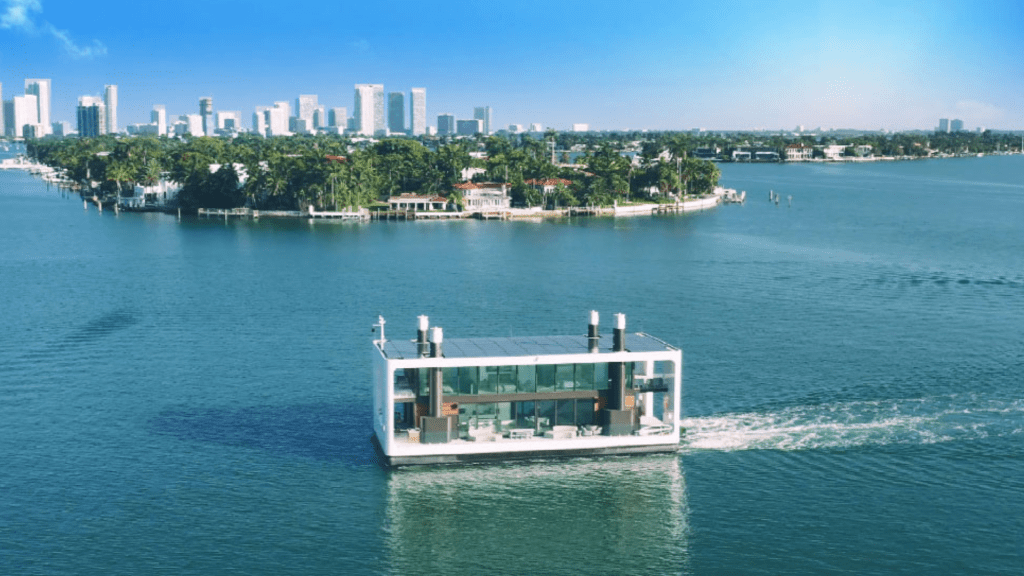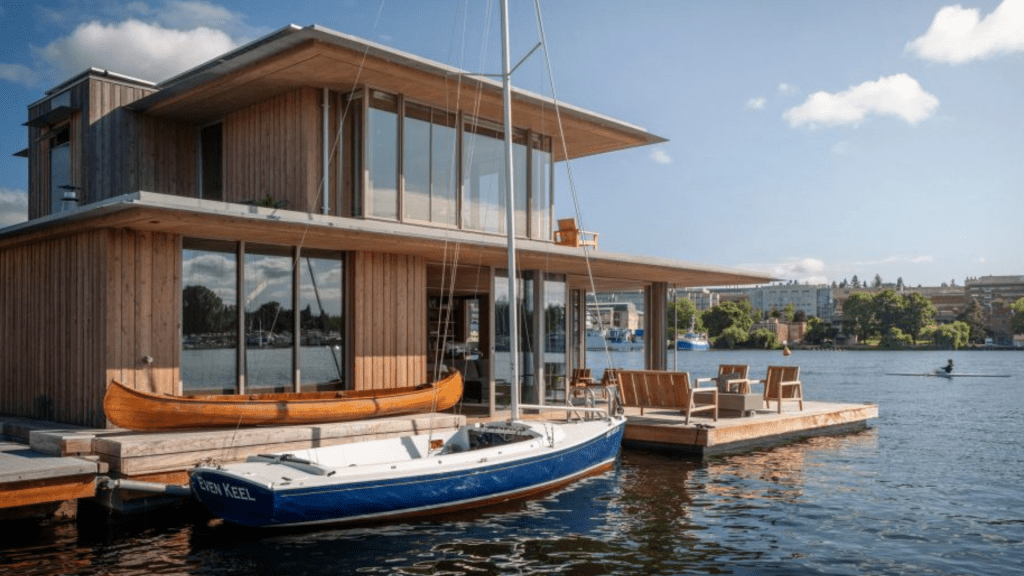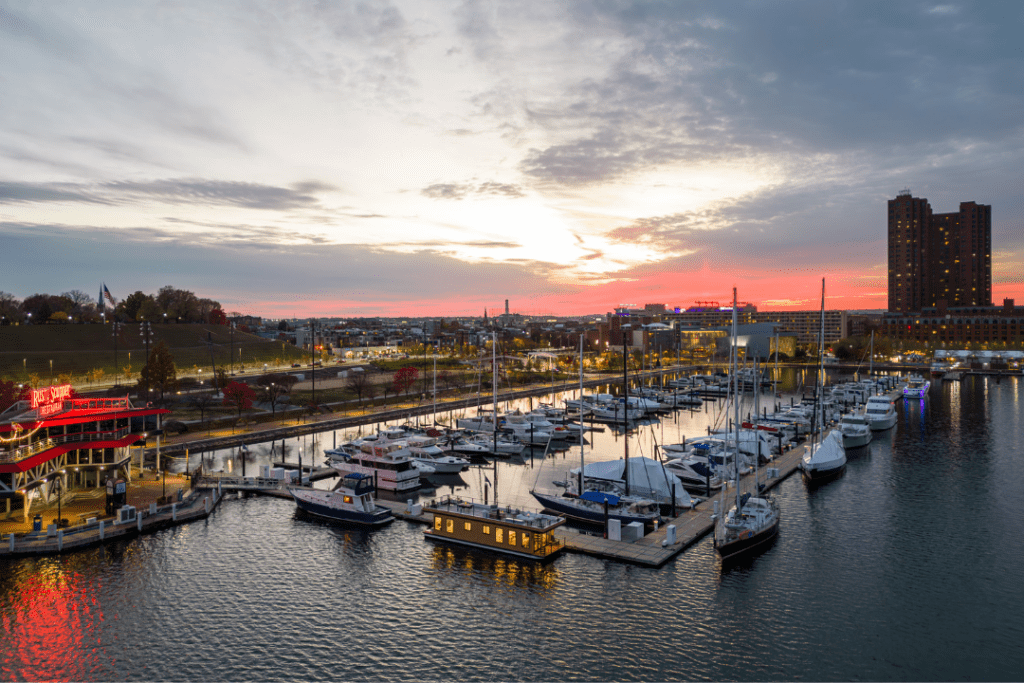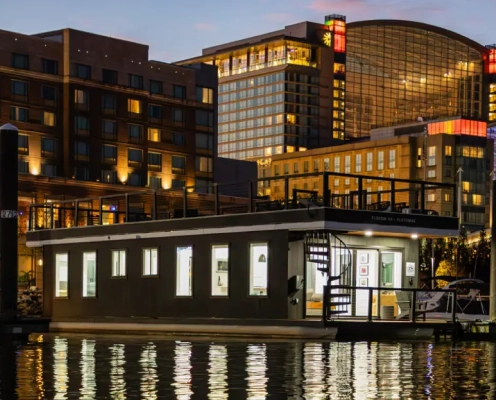Floating Homes and Houseboats: What’s the Difference?
Much of our society’s frame of reference for life aboard a floating home comes from the classic 90’s rom-com, Sleepless in Seattle. In the movie, Tom Hanks’ main character resides in a charming waterside home that we have been culturally referring to as a “houseboat” for decades now. We really hate to split hairs about one of America’s favorite movies, but since our guests rely on us to have the most accurate knowledge on the subject, we have to point out that it’s not a houseboat – it’s a floating home.

So, what’s the difference between a floating home and a houseboat anyway? When it comes down to it, there’s the literal distinction between the two based on standard definitions. But there’s also a contrast and overlap in terms of what might make one or the other a suitable purchase, or long-term rental. Read on for an overview of the basics and a dive into the nitty gritty to help you become a real connoisseur of the life aquatic.
The definitions:
Strictly speaking, a houseboat is defined as a self-propelled, powered marine vessel that is capable of maneuvering on its own. They are traditionally moored in recreational marinas just like any other boat, whereas a floating home is permanently moored and has no means of self-propulsion. Even though a floating home is capable of being moved, it is not considered a vessel.

Which one is better?
That answer turns out to be a matter of personal preference and lifestyle choices. If you’re considering investing in one or the other, the better question to ask is which one is right for you? There are some things inherent to living on a vessel (read:houseboat) as opposed to living in a house that is moored to a marina (floating home).
Life on a houseboat means that even if you choose to drop anchor in a single location for a long period of time, you’re still free to roam wherever your heart takes you. A floating home is typically either built directly upon its mooring, or it is constructed separately and towed into place. Once in place, it’s often the case that the home is permanently connected to the municipal utility and sewer lines. Cable, electricity, and plumbing function just as in your own home on land. A houseboat will be more self-sufficient, with “quick release” features to be used if it has any connections at all to city utilities.

You could think of a houseboat as an RV, whereas a floating home would be a condo. The houseboat has the capabilities of an RV and handles utilities and waste much the same way (with all the accompanying chores), and you can cruise the country or set up a more long-term base. Your floating home will likely have fees to maintain its dock and slip, not dissimilar to a condo’s HOA dues for the building. A floating home will also be bought and sold similarly to any other dwelling, with standard closing costs, and property tax. Traditional loans are also available, though they’re limited and can be trickier to obtain. A houseboat transaction will include a one-time sales tax and no property tax, but you will have to hire a diver to inspect the hull’s seaworthiness semi-regularly.

Which option you choose will also depend on the laws and regulations of the area you’re considering. As it stands today, there’s many cities and marinas that do not allow liveaboard vessels or dwellings, with some bans in place. However, motivations from rising sea levels to new tax opportunities are leading to changes in regulations every day. Pay attention to the legislation in your area to find out if a floating lifestyle is possible for you.
What about life on board?
There’s an immense variety of both houseboats and floating homes around the world, and with the proper engineering in place, imagination may be the only limitation in regard to design. You’ll find houseboats vary greatly between countries and regions with their unique blueprint, but there are a couple of trends. A houseboat will typically be smaller, with one or two bedrooms at most. It will be furnished for comfort and regular habitation, but will have a traditional engine room and navigational features. Floating homes are more likely to be larger and distinguished by intentional design features that make good use of the surrounding natural environment, such as floor to ceiling windows or a wrap around deck.

What we really love about floating homes is that you’re not giving up anything in exchange for having the most amazing waterview you could ever imagine – they have all of the comfort you’re used to. The communities tend to be quieter as well, without any busy streets. If you love being surrounded by nature and waking up near water, you’ll absolutely love opening your front door and watching the sunrise over the peaceful waters right beneath your porch.
Whether you lean toward something mobile like a houseboat or the stationary life of a floating home, in both cases, you’ll have immediate access to the grand and beautiful outdoors. Your neighbors might be otters, sea turtles, herons, or even dolphins. For dinner, a fisherman could simply cast a line off their floating home or houseboat, and there’s no shortage of kayaking, paddle boarding, or swimming to be had. It’s an experience you’ll have to see to believe, and we look forward to welcoming you aboard.
OTHER ARTICLES





